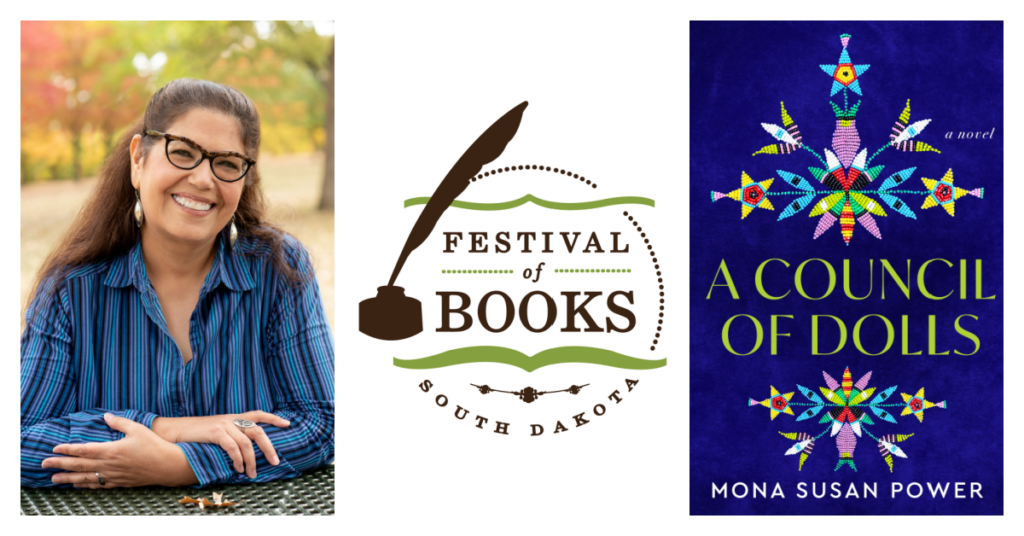Festival Feature: A Novel Surprise
August 3, 2024

NOTE: A version of this story appears in our 2024 South Dakota Festival of Books guide, produced by South Dakota Magazine.
So much of A Council of Dolls was a surprise for author Mona Susan Power. She was working on another novel when a friend called about a short story that Power had written years earlier called “Naming Ceremony.” It was about a little girl named Lillian growing up in Chicago in the 1960s with Indigenous parents who carried the multigenerational trauma of the Indian boarding school experience. “You know, this could be a whole novel,” she told Power.
“Naming Ceremony” is now the first part of A Council of Dolls, a novel that explores those long lingering effects through three generations of a Native family.
The work is fiction, though Lillian (nicknamed Sissy) is inspired by Power’s own childhood in 1960s Chicago. “My mother didn’t sugar coat things,” says Power, an enrolled member of the Standing Rock Sioux Tribe. “She was telling me about her experiences at those Indian boarding schools as soon as I was able to understand. Whatever issues I might have been having, it was nothing compared to that kind of system and how wrong it was.”
There’s dysfunction in each generation, and its source becomes clearer as the first three sections of the novel travel further back in time and readers meet the characters as children. Power originally intended to set the novel entirely in the 1960s, but worried readers might unfairly judge the characters. To provide fuller context meant wading deeper into history. “I didn’t want to villainize any of them,” she says. “I didn’t want to pull punches, but I really wanted to villainize colonization as opposed to any of these individual characters.”
Each child navigates these strange and foreign worlds with a doll — another surprise. “Ethel just arrived,” Power says of Lillian’s doll, which appeared one day during the writing process. “She was just there.”
The dolls help process the complex emotions of turbulent childhoods, much like Power’s own doll, which serves as the basis for Ethel. “I used to create back stories for my dolls, and they were very real to me,” Power says. “My mother used to tell me that everything was potentially alive. She didn’t see things as inanimate objects, so it wasn’t a leap for me to look at some of my toys as these little beings who were invested in me and my life.”
A Council of Dolls won the Minnesota Book award and was longlisted for both the Carol Shields Prize and the National Book Award. In some ways, it feels like a novel Power was always meant to write. “It means the most to me of anything I’ve written,” she says. “It was more personal than any of my other published books. There were times I didn’t realize that I was crying as I was typing. It was only when I kept wiping at my face that I realized I was crying. I felt so much this push from ancestors. I was raised to believe that they are there, still invested in their descendants and relatives. I was raised to ask them for support when I needed it. I really felt as if so many of our dead were surrounding me. It was emotional and very cathartic.”
Learn more about humanities programming in South Dakota by signing up for SDHC e-Updates!